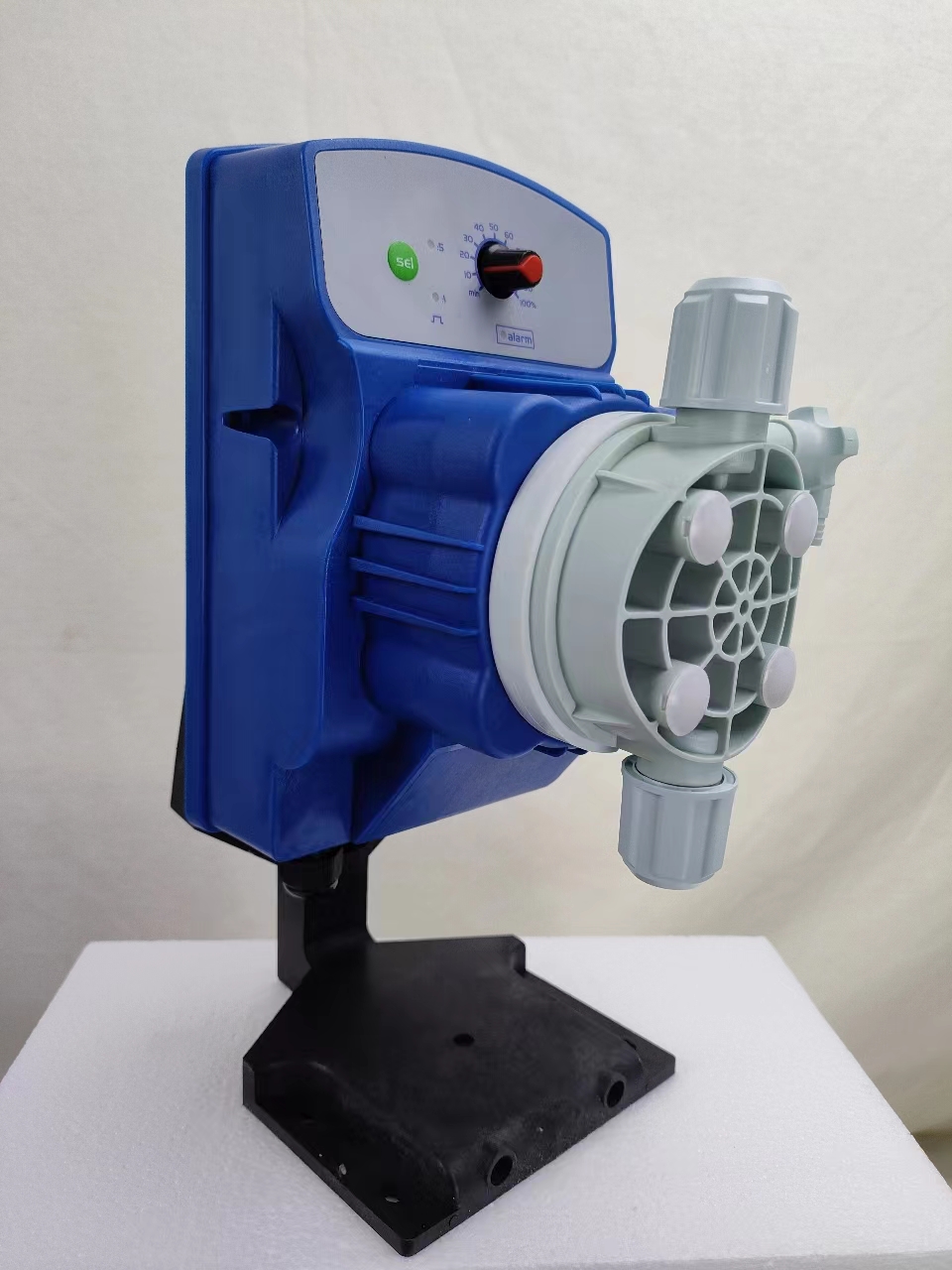Have you ever wondered how chemicals and liquids are accurately measured and added to various industrial processes? Look no further than the dosing pump! In this article, we will dive into the fascinating world of dosing pumps and unravel the mystery behind their functioning. Whether you’re a curious mind or someone in need of precise liquid dosing solutions, join us as we explore what makes these pumps an essential tool in countless industries. Get ready to discover the inner workings of dosing pumps and witness their incredible ability to deliver accurate and controlled amounts of fluids with ease. So, let’s embark on this journey together and unveil the secrets behind the reliable and efficient operation of dosing pumps!
August 23, 2023
What is a Dosing Pump?
A dosing pump, also known as a metering pump or chemical pump, is a precision device designed to accurately deliver small quantities of liquid chemicals or additives into a process. It finds extensive applications across industries where precise control of fluid flow and chemical dosage is crucial.
A dosing pump is a positive displacement pump that operates by displacing a fixed volume of liquid with each stroke or rotation. Its primary purpose is to inject chemicals or additives into a system at specific rates, ensuring accurate measurements and consistent dosages.
Components of a Dosing Pump
Dosing pumps typically consist of several essential components, including:
- Pump Head: This component houses the pumping mechanism and ensures the controlled delivery of the liquid.Head have PVDF and PVC materials
- Drive Mechanism: The drive mechanism powers the pump by converting energy from an electric motor or pneumatic source into mechanical motion, driving the piston, diaphragm, or rotor.
- Liquid Storage Container: A reservoir holds the chemical solution to be dosed, providing a continuous supply for accurate and consistent dosing.
- Valves: Check valves ensure unidirectional flow by preventing backflow when the pump is not in operation.
- Control System: Modern dosing pumps often come equipped with advanced control systems that allow for precise adjustment of dosage rates, timing intervals, and other parameters.
Types of Dosing Pumps
There are various types of dosing pumps available in the market today, each suitable for different applications based on factors such as pressure requirements, flow rates, viscosity, and chemical compatibility. Some common types include:
- Diaphragm Pumps: These pumps use a flexible diaphragm to displace liquid during each stroke cycle. They are commonly used for low-pressure applications and are ideal for handling corrosive or abrasive fluids.
- Peristaltic Pumps: Peristaltic pumps utilize rotating rollers or shoes to compress and release a flexible tube, propelling the liquid forward. They are highly versatile, offering excellent dosing accuracy and compatibility with a wide range of fluids.
- Plunger Pumps: Plunger pumps rely on reciprocating plungers or pistons to generate pressure and deliver precise doses of chemicals. They are well-suited for high-pressure applications and can handle both viscous and non-viscous fluids.
How Does a Dosing Pump Work?
Working Principle
The working principle of a dosing pump revolves around the precision delivery of liquid through positive displacement. In simple terms, it involves drawing in a fixed volume of fluid during the suction stroke and then displacing it during the discharge stroke, ensuring accurate dosing.
Different types of dosing pumps employ various mechanisms to achieve this. For instance, diaphragm pumps use the flexing action of the diaphragm to create suction and discharge cycles, while peristaltic pumps rely on the compression and release of a flexible tube. Plunger pumps, on the other hand, use reciprocating plungers to draw in and expel liquid.
Operation Modes
Dosing pumps can operate in different modes depending on the application requirements. The two main operation modes include:
- Constant Flow Rate Mode: In this mode, the dosing pump delivers a constant flow rate regardless of changes in system pressure or conditions.
- Proportional Control Mode: Proportional control mode enables dosing pumps to adjust their output according to external signals from sensors or process controllers. This allows for precise regulation based on feedback signals such as pH levels or conductivity.
Accuracy and Control
One significant advantage of dosing pumps is their ability to provide exceptional accuracy when it
Popular Brands for Dosing Pumps
When it comes to dosing pumps, there are several popular brands that have gained recognition for their quality and reliability. These brands offer a wide range of dosing pumps that cater to various industries and applications.
One popular brand is Grundfos, known for its innovative and efficient dosing pump solutions. Grundfos offers a comprehensive range of dosing pumps that can handle both simple and complex dosing applications. Their dosing pumps are designed to deliver precise and accurate dosing of chemicals and other fluids, making them ideal for water treatment, wastewater management, and industrial processes.
SEKO is a reputable brand recognized globally for its expertise in providing reliable dose control solutions. SEKO offers an extensive selection of electronic diaphragm metering pumps that ensure accurate dosage even under challenging conditions. Their dosing pumps find applications in diverse sectors including swimming pools, agriculture, food and beverage, and car wash systems.
Alledosieren is yet another popular brand that specializes in chemical metering pumps.alledosieren offers a diverse range of dosing pumps suitable for various applications such as water treatment, agriculture, food processing, and pharmaceuticals.
Chinese made dosing pump: With the development of science and technology, the dosing pumps made by Chinese factory are becoming more and more popular with customers, which are similar to the SEKO brand in terms of quality and function.
But the price will be much better than SEKO.
Many customers bought SEKO pumps before, and now they are slowly switching to Chinese-made dosing pumps.
These brands have established themselves as leaders in the dosing pump market by consistently delivering high-quality products that meet the needs of different industries. Whether you require precise chemical dosing or accurate metering of fluids, these popular brands offer a range of options to choose from, ensuring you find the perfect dosing pump for your specific requirements.

Detailed Operating Instructions for Automatic Dosing Systems
December 26, 2024
Characteristics and Applications of Precision Filters
December 19, 2024



